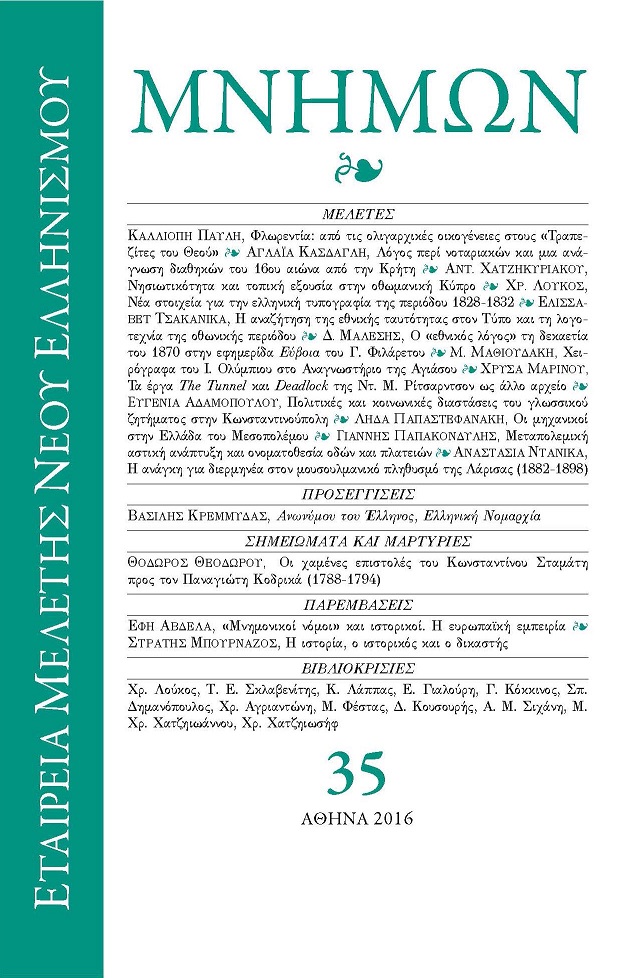“Speaking only the ottoman language”: Need for an interpreter among the muslim population of Larissa (Greece) in 18821898

Published:
Apr 22, 2019
Keywords:
ottoman language muslim population Larissa
Abstract
The study deals with the ability of muslim population that remained in Larissa after the annexation of Thessaly to the Greek State to speak and write in greek. The political transformation at the end of the nineteenth century affected muslim populations living in Thessaly and Ipirus. Once a privileged majority, they had now become a minority group in a predominantly orthodox christian society, while greek was now the official language of the state and the administration. Research is based on purchases of property and goods registered in the notarial archive of Agathagellos Ioannidis. Having studied more than a thousand such acts we come to conclusions of how familiar the Othomans were with the greek language. The research is showing that an interpreter is needed in a small percentage of the acts (about 15%). Usually, the muslims in need of interpreter are women, living in Larissa, or peasants of the villages M. Kaeserli (Sykourio) and Kazaklar (Ampelonas), where until the annexation inhabited exclusively muslim population. Ιt also focuses on the Moufti of Larissa, who is referred in the acts of the archive. Making good use of the opportunity, unpublished information is given for various persons and their activities in the city during the period being studied.
Article Details
- How to Cite
-
ΝΤΑΝΙΚΑ Α. (2019). “Speaking only the ottoman language”: Need for an interpreter among the muslim population of Larissa (Greece) in 18821898. Mnimon, 35(35), 293–313. https://doi.org/10.12681/mnimon.20261
- Issue
- Vol. 35 (2016): Μνήμων
- Section
- ARTICLES

This work is licensed under a Creative Commons Attribution-NonCommercial-ShareAlike 4.0 International License.
The copyright for articles in this journal is retained by the author(s), with first publication rights granted to the journal. By virtue of their appearance in this open access journal, articles are free to use (with the exception of the non-granted right to make derivative works) with proper attribution for non-commercial uses (licence Creative Commons 4.0). EKT/NHRF retains the worldwide right to reproduce, display, distribute, and use articles published in Mnimon in all formats and media, either separately or as part of collective works for the full term of copyright. This includes but is not limited to the right to publish articles in an issue of the Journal, copy and distribute individual reprints of the articles, authorize reproduction of articles in their entirety in another EKT/NHRF publication, and authorize reproduction and distribution of articles or abstracts thereof by means of computerized retrieval systems.Downloads
Download data is not yet available.


